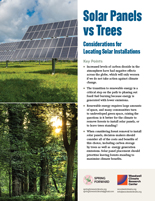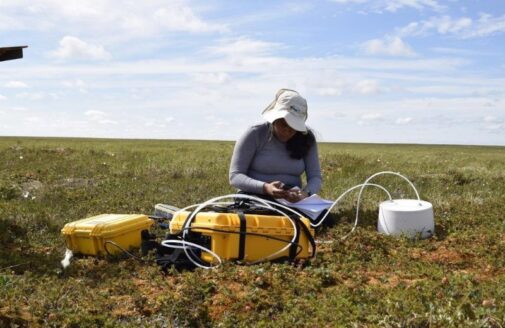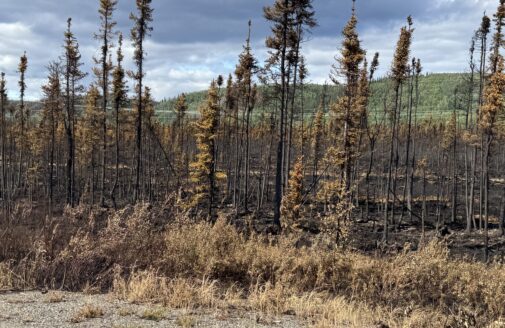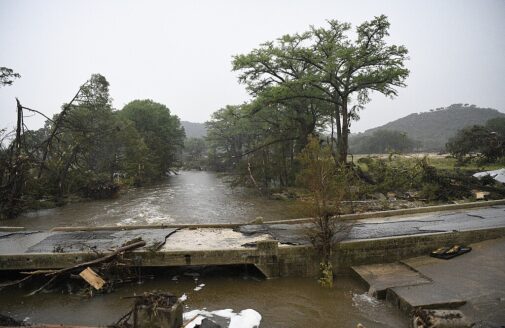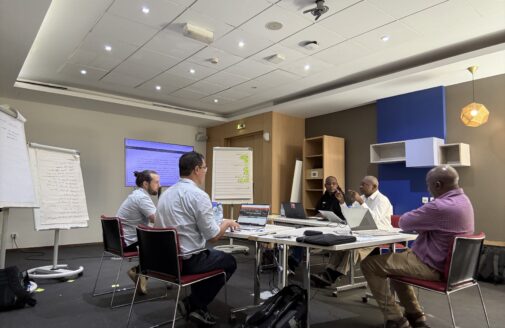Students take climate education into their own hands
Student-led education group partners with Woodwell to develop a brief on climate issues
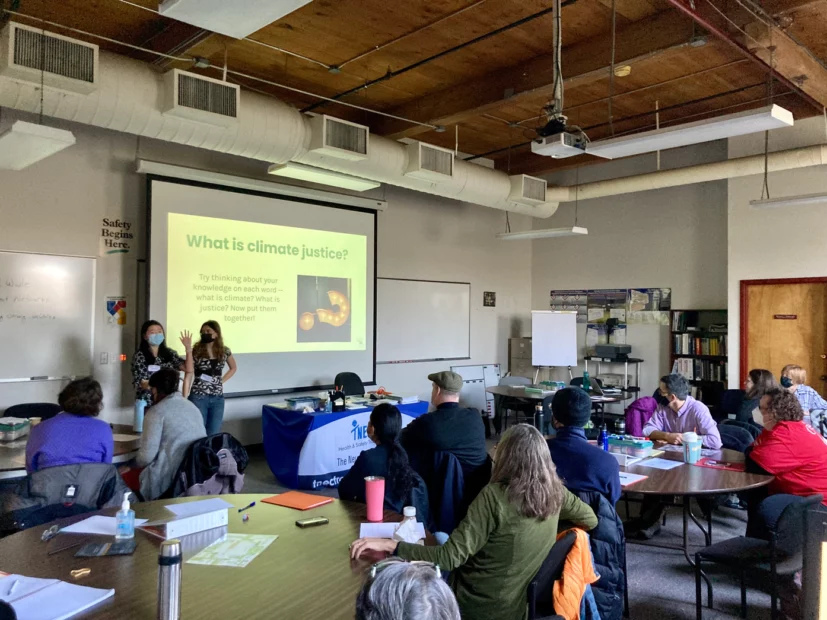
Spring Forward founders present at the Massachusetts Teachers Association Climate Action Network Conference.
photo courtesy of Spring Forward
Switching light bulbs, recycling and composting, biking to school—to high school seniors Alice Fan, Amelia Kane, and Simone Colburn, these sorts of sustainability solutions being taught in their classes just didn’t feel like enough.
“We were seeing a gap in climate education,” says Fan. “We would learn about the greenhouse gas effect, and about the polar bears, but the curriculum wouldn’t really touch on the human aspects of climate change, like environmental justice, redlining, and all the systemic issues that bring a different lens to climate change.”
Fan, Colburn, Kane, and some of their fellow students had come to understand the true scope of the issue through their individual interests and participation in activist and environmental groups outside of school. But the more involved they became, the wider the gap grew between them and their classmates. So they decided to take on the role of educators themselves, founding the Spring Forward Climate Education organization.
Spring Forward’s mission is to bring those larger conversations about climate justice into elementary and middle school classrooms, after-school programs, and summer camps. The organization’s high school members have developed lesson plans and activities that they lead for their younger peers. Mina Subramanian, Spring Forward’s Partnerships Coordinator, says climate education taught by students can be more impactful than receiving information from adults.
“I joined a climate organization before Spring Forward, but it was mostly adults. I felt like in that space, I didn’t have the voice that I wanted to,” Subramanian says. “But at Spring Forward, being youth led, it is such a different environment. We’re all on the same playing field and we all empower each other.”
Spring Forward has also begun branching out from classroom education to develop additional materials that inform on broader climate topics. Collaborating with Woodwell, the team has created a policy brief around the issue of balancing solar panel installation with other land use considerations.
Solar panels require large clear tracts of land with good sun exposure. Some existing municipal development plans indicate their installation on land currently covered with forests or other vegetation. Forests are some of the best natural carbon sinks and sacrificing them in a rush to install renewable infrastructure is counterproductive. The Spring Forward team wanted to make the policy more accessible to the general public.
“We need both solar and forests working together—not in competition—if we are going to be successful in addressing the climate crisis,” says Woodwell Carbon Program Director, Wayne Walker, who worked with the Spring Forward team on the brief. “Educating on these complex topics is so important, and the collaboration with Spring Forward offered me the unique opportunity not only to share some of my knowledge with the students, but also to play a small part in helping the students educate others.”
As the group continues to grow and evolve with new members and partnerships, they hope to temper the sting of a sometimes scary topic by showing both kids and adults that they have a voice they can use to make a difference. Talking about the problem helps everyone develop a path forward.
“In our lessons we try to give information even if it’s scary, but then say ‘okay, well what can you do about it?’” says Colburn. “And one of our big beliefs is that if kids are getting weighed down by information, knowing that they can have power and that they can be influential is really helpful.”




